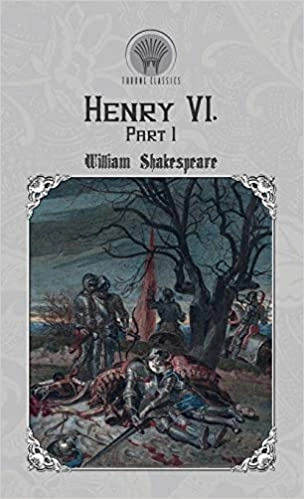Reading Level
What is the reading level of Henry VI Part 1 ?
Analysing the books in the series, we estimate that the reading level of Henry VI Part 1 is 7th and 8th grade.
Expert Readability Tests for
Henry VI Part 1
| Readability Test | Reading Level |
|---|---|
| Flesch Kincaid Scale | Grade 6 |
| SMOG Index | Grade 8 |
| Coleman Liau Index | Grade 8 |
| Dale Chall Readability Score | Grade 7 |
Reading Time
1 hrs 23 mins
How long to read Henry VI Part 1 (Folger Shakespeare Library)?
The estimated word count of Henry VI Part 1 (Folger Shakespeare Library) is 20,615 words.
A person reading at the average speed of 250 words/min, will finish the book in 1 hrs 23 mins. At a slower speed of 150 words/min, they will finish it in 2 hrs 18 mins. At a faster speed of 450 words/min, they will finish it in 0 hrs 46 mins.
| Henry VI Part 1 (Folger Shakespeare Library) - 20,615 words | ||
|---|---|---|
| Reading Speed | Time to Read | |
| Slow | 150 words/min | 2 hrs 18 mins |
| Average | 250 words/min | 1 hrs 23 mins |
| Fast | 450 words/min | 0 hrs 46 mins |
- Authors
-
William Shakespeare
More about Henry VI Part 1
20,615 words
Word Count
for Henry VI Part 1 (Folger Shakespeare Library)
194 pages
Pages
2 hours and 13 minutes
Audiobook length
Description
Henry VI, Part 1, often referred to as 1 Henry VI, is a history play by William Shakespeare--possibly in collaboration with Christopher Marlowe and Thomas Nashe--believed to have been written in 1591. It is set during the lifetime of King Henry VI of England.Whereas Henry VI, Part 2 deals with the King's inability to quell the bickering of his nobles and the inevitability of armed conflict and Henry VI, Part 3 deals with the horrors of that conflict, Henry VI, Part 1 deals with the loss of England's French territories and the political machinations leading up to the Wars of the Roses, as the English political system is torn apart by personal squabbles and petty jealousy.Although the Henry VI trilogy may not have been written in chronological order, the three plays are often grouped together with Richard III to form a tetralogy covering the entire Wars of the Roses saga, from the death of Henry V in 1422 to the rise to power of Henry VII in 1485. It was the success of this sequence of plays that firmly established Shakespeare's reputation as a playwright.Some regard Henry VI, Part 1 as the weakest of Shakespeare's plays. Along with Titus Andronicus, it is generally considered one of the strongest candidates for evidence that Shakespeare collaborated with other dramatists early in his career.
